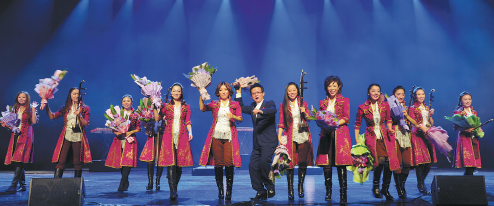Meicun still sings as erhu production hub
By Yuan Shenggao | China Daily | Updated: 2019-11-14 09:19

Wuxi, home to legendary folk musician Abing, continues to foster craftsmen, performers
When studying the modern history of erhu, a two-stringed Chinese musical instrument, Wuxi in Jiangsu province is a place that researchers can't ignore.
Meicun, an ancient town located in the Wuxi National Hi-Tech District, or Wuxi new area, stands at the core of the production of erhu and is also a hub for erhu performing arts.
Meicun, as well as Wuxi, is associated with many renowned artists, craftsmen and their stories. And erhu has become the cultural symbol of the town and the city.
One of the local legendary figures is Hua Yanjun, whose masterpiece Erquan Yingyue, or The Moon's Reflection on the Second Spring, is among the most frequently played erhu solo in China.
Hua, also named Abing, was a folk musician born in Wuxi in 1893. He learned to play the erhu and other instruments from his father.
Hua showed great talent when he was a teenager, but the talent did not earn him a decent life. After the death of his mother and father, he became homeless and had to play on the streets to make money.
Adding to his misfortune, he developed a serious disease and became blind. He died in poverty in 1950. And Erquan Yingyue was a reflection of his life.
The style of this piece displays an intense folk character. At the same time, it portrays the hardships, trials and tribulations of the composer's life. A soft and fluent melody combined with a profound inspiration conjures up the composer's sense of dissatisfaction and bitterness in his world, and also reveals his longing for a better life.
In addition to Hua, Wuxi is the hometown of more than half of the top erhu artists in China over the past century.
























